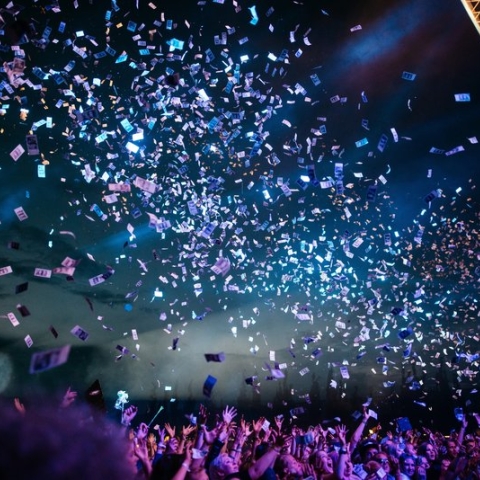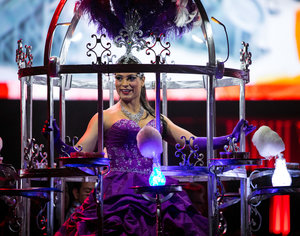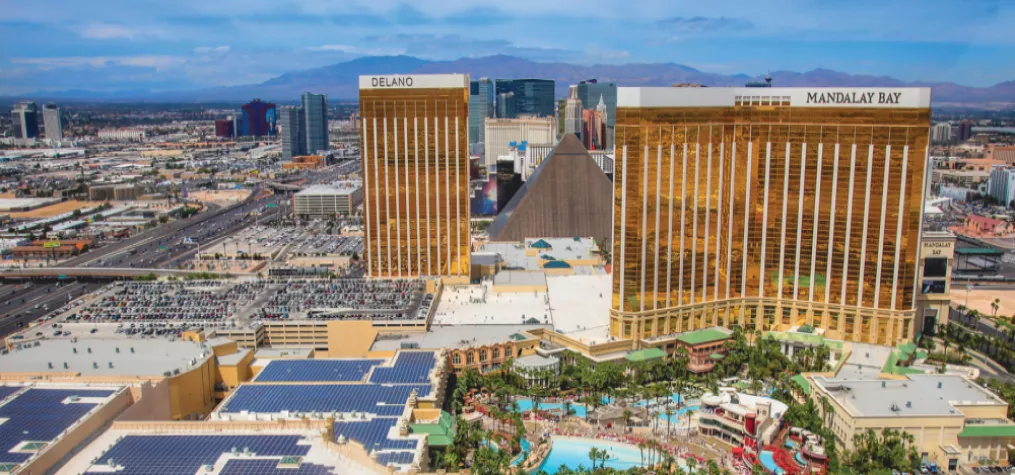B2B Planners Use B2C Strategies to Infuse Energy into Corporate Events

Consumers get to have all the fun. Business-to-consumer (B2C) events are festivals filled with entertainment, giveaways and memorable experiences, while business-to-business (B2B) events are all buttoned-up networking and deal-making. But, does it have to be that way?
“It’s commonly said that B2B marketing events are about long-term relationship building, whereas B2C events are about prompting a purchase,” said Leigh Long, head of marketing at The XD Agency. “That argument tells us that the two are distinct disciplines that need to be approached entirely differently, but that’s a fallacy.”
Today, many B2B corporate event planners are “borrowing” ideas from B2C to make emotional connections and create memorable experiences for attendees.
“It’s critical for B2B event marketers to realize even their business audiences are people first and just like a consumer set, they want to be entertained, engaged, emotionally rapt,” said Long.
A big B2C influence on B2B events is an overarching push toward making B2B events more like B2C brand activations.
Brent Turner, SVP marketing strategy and technology at Cramer, notes that they are seeing this push come into B2B events across strategy, design, content and technology changes.
“In terms of strategy, B2B events are enveloped in the mega trend of festivalization,” he explained. “From large scale developer conferences like AWS Re:Invent and Google I/O, to thought leadership conferences like C2 Montreal, to internal meetings and events, the common pattern of 'general session, breakout, general session, dinner' is transforming into a multi-sensory, choose-your-own adventure, arts infused experience for B2B event attendees.”
Beth Lawrence, president and CEO of Beth Lawrence LLC, says B2B planners need to change the way they think about planning events.
“Many planners look at events as a checklist—food, beverage, AV, speakers, etc—when they should really be thinking about creating lasting memories,” she said.
Lawrence continued, “Experiences like Refinery 29's ‘29 Rooms’ campaign and the Museum of Ice Cream are perfect examples; they create overall experiences using all five senses, which not only creates memories and brand love, but begs for the attendees to take and share photos, which is a vital part of marketing.”

Kelly Elliot, Total Event Resources creative manager, believes B2B event planners should design events and experiences that focus on connecting people and allowing them to be content contributors, not just observers.
“Making attendees feel like they are a part of the content of an event resonates with them emotionally and leads to increased brand perception and turns internal employees into brand evangelists,” Elliot explained. “Don’t just talk AT your audience, engage with them.”
As B2B events look to B2C events for content ideas, it’s important to make both the marketing and program content more peer-centric and more social.
“We are bringing in podcast booths and live social video teams, and we are changing the marketing with things like mixtapes and ticket application,” Turner said.
B2B event planners should also find ways to activate otherwise passive spaces.
“Try interactive art, group-based virtual reality stations or unexpected selfie stations to provide creative tools for attendees to 'imprint' themselves on the environment — or redesign lounge spaces so that they spark conversation, like making a ballroom look like a public park,” Turner suggested.
He continued, “Technology continues to be a playground for both B2C and B2B events. The rise of augmented reality and virtual reality, the expansion of physical/digital technologies like wearables and facial recognition and AI-powered networking have all made events a meaningful place for B2B brands to explore technology and demonstrate innovation.”
Stephanie Heishman, principal at Freya LLC, adds that having a conference app that goes beyond the agenda and should be used for networking and social media sharing is helpful.
“You want your attendees to have a seamless experience and technology helps,” Heishman explained.
“A sophisticated app will accommodate real-time communications such as 'this session is full' , or remind attendees to get to the keynote room to be in your seats and other announcements,” she added.
Long points out that B2B events can have elements that are just as creative and unexpected as those at B2C events.
“At Cisco Live we got the crowd pumped with a hot dog cannon,” she said. “Picture a t-shirt cannon at a sporting event, but in this case, the guy manning it was dressed as a hot dog and was shooting hot dogs into this professional crowd. It injected some unexpected fun that put people in more of a mindset to relax, to enjoy, and to expect the unexpected.”
B2C strategies can have a dramatic impact on B2B events. To infuse B2C into a B2B event successfully, know your audience and design accordingly; be willing to take a risk in changing programming format and marketing communications. Commit to injecting event content and marketing with personality, developing and broadcasting a clear brand voice, and embracing boldness in every brand statement.


Add new comment